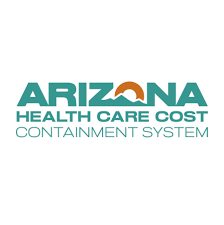Good oral health is more than just a nice smile. Having good oral health improves a person’s ability to speak, smile, smell, taste, touch, chew and eat. Untreated tooth decay leads to needless pain and suffering; difficulty in speaking, chewing, and swallowing; and missed school days. Evidence also suggests that poor oral hygiene and health increases the risk of other health problems like diabetes, stroke, heart disease and bad pregnancy outcomes.
Physical and nutritional changes that occur during pregnancy often lead to an increased risk of dental and gum problems from increased inflammatory response, loosened ligaments and increased acidity in the mouth. In addition, several studies have found a link between gum infection and poor birth outcomes, such as pre-term deliveries, lower birth weight and high blood pressure, which can lead to serious complications for both mom and the baby.
Many studies have found a relationship between periodontal disease and worse birth outcomes- but until now there hasn’t been a systematic overview of systematic reviews. Now there is. This new systematic overview found a clear relationship between periodontal disease and pre-term birth, low birth weight and preeclampsia (potentially dangerous high blood pressure during delivery). The researchers reviewed 23 systematic reviews (including between 3 and 45 studies) and found an association between periodontal disease and preterm birth (relative risk, 1.6), low birth weight (LBW; relative risk, 1.7), preeclampsia (odds ratio, 2.2), and preterm low birth weight (relative risk 3.4).
The implications of the study are profound. The estimated population-attributable fractions for periodontal disease has a mid-point of 16%, 18% for low birth weight, and 22% for preeclampsia. Let’s look at what that means here in AZ.
In 2015, 7.2% of AZ live births were low birthweight (less than 2.5 kg). With about 80,000 births (5,760 low birthweight births a year), that means periodontal disease is potentially contributing to 1,036 low birthweight weight babies each year in AZ.
About half of AZ births are paid for by our Medicaid program- meaning periodontal disease may be contributing to 520 low birth weight babies among Medicaid members every year. Let’s look at what that might be costing.
An analysis by Truven Health Analytics a few years ago found that the average health care cost for a low birth weight baby during the first year of life is $55,393 compared with $5,085 for a non-low birth weight baby.
Putting the two estimates together suggests that the 520 pre-term babies potentially attributable to periodontal disease (and paid for by Medicaid) would cost about $29M for the first year of life compared with only $2.6M for a similar number of non pre-term births, a savings to the state that is much greater than the estimated cost of the benefit (less than $200K in the first year).
Let’s do whatever we can to get comprehensive oral health coverage for pregnant Medicaid members SB 1088 over the line this year and improve birth outcomes while reducing health care costs! It’s being heard in the House Appropriations Committee Wednesday, March 20 starting at 2 pm. We’re signed up in support of the initiative and I’ll be speaking briefly at the hearing.
You can help by contact the House Appropriations Committee members with the contact info at the end of this email and letting them know that investing in better oral health for pregnant Medicaid members will improve birth outcomes and reduce healthcare costs. The piece below is also posted on our website at: https://azpha.org/wills-blog
Member & email address
Regina E. Cobb rcobb@azleg.gov
Diego Espinoza despinoza@azleg.gov
Charlene R. Fernandez cfernandez@azleg.gov
John Fillmore jfillmore@azleg.gov
Randall Friese rfriese@azleg.gov
John Kavanagh jkavanaugh@azleg.gov
Anthony T. Kern akern@azleg.gov
Aaron Lieberman alieberman@azleg.gov
Bret Roberts broberts@azleg.gov
Ben Toma btoma@azleg.gov
Michelle Udall mudall@azleg.gov
